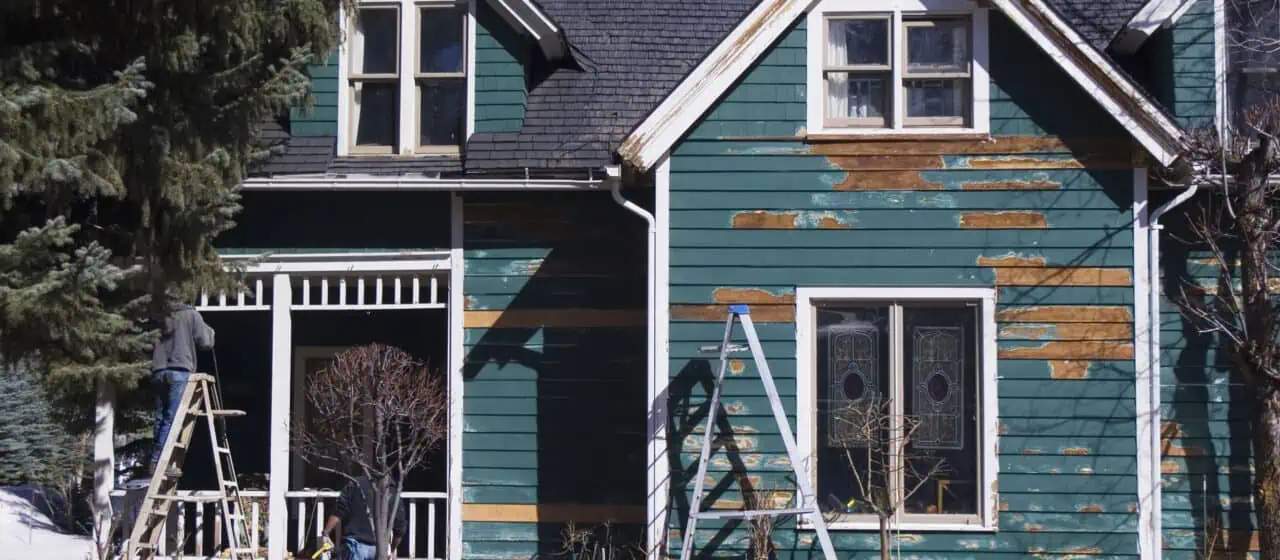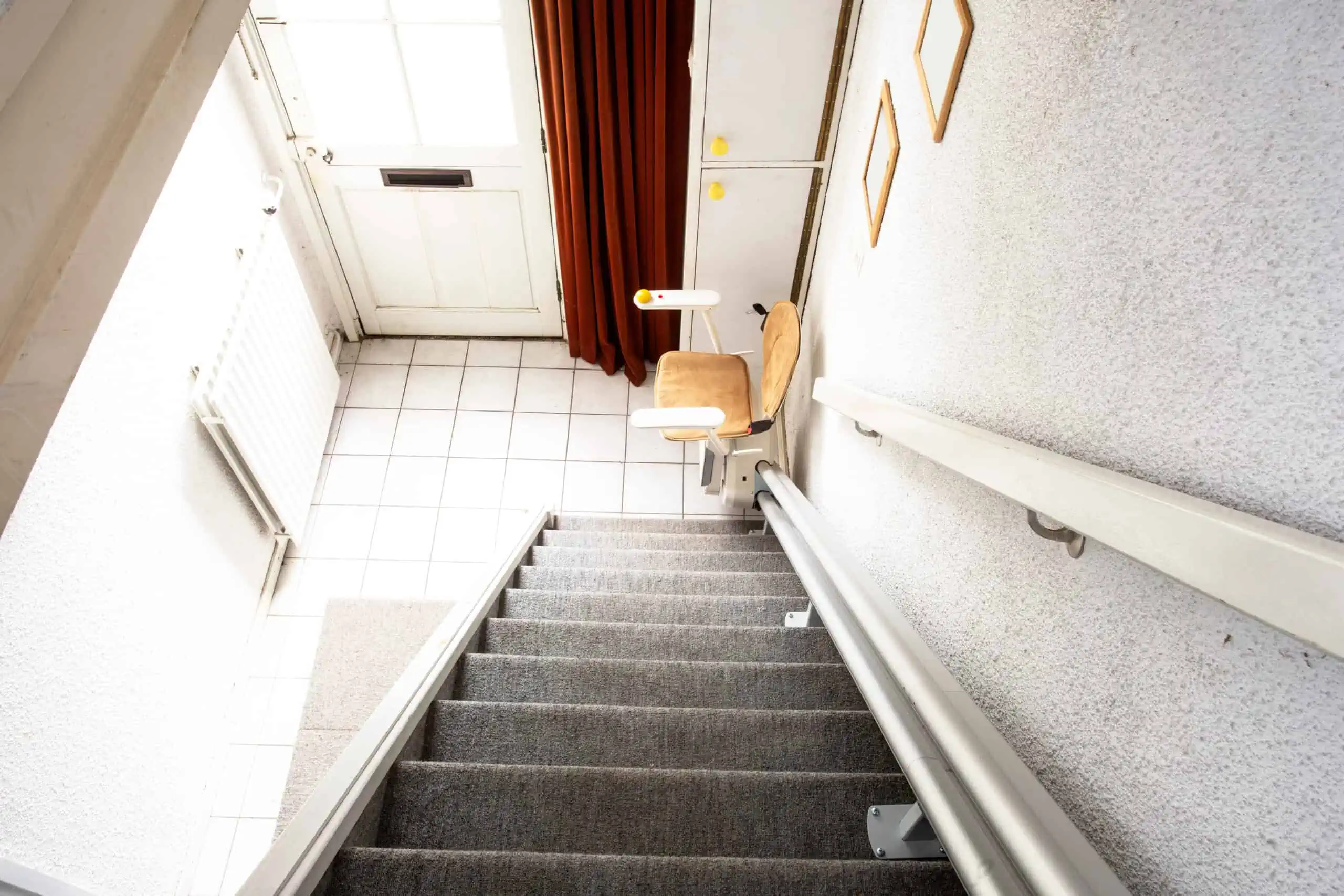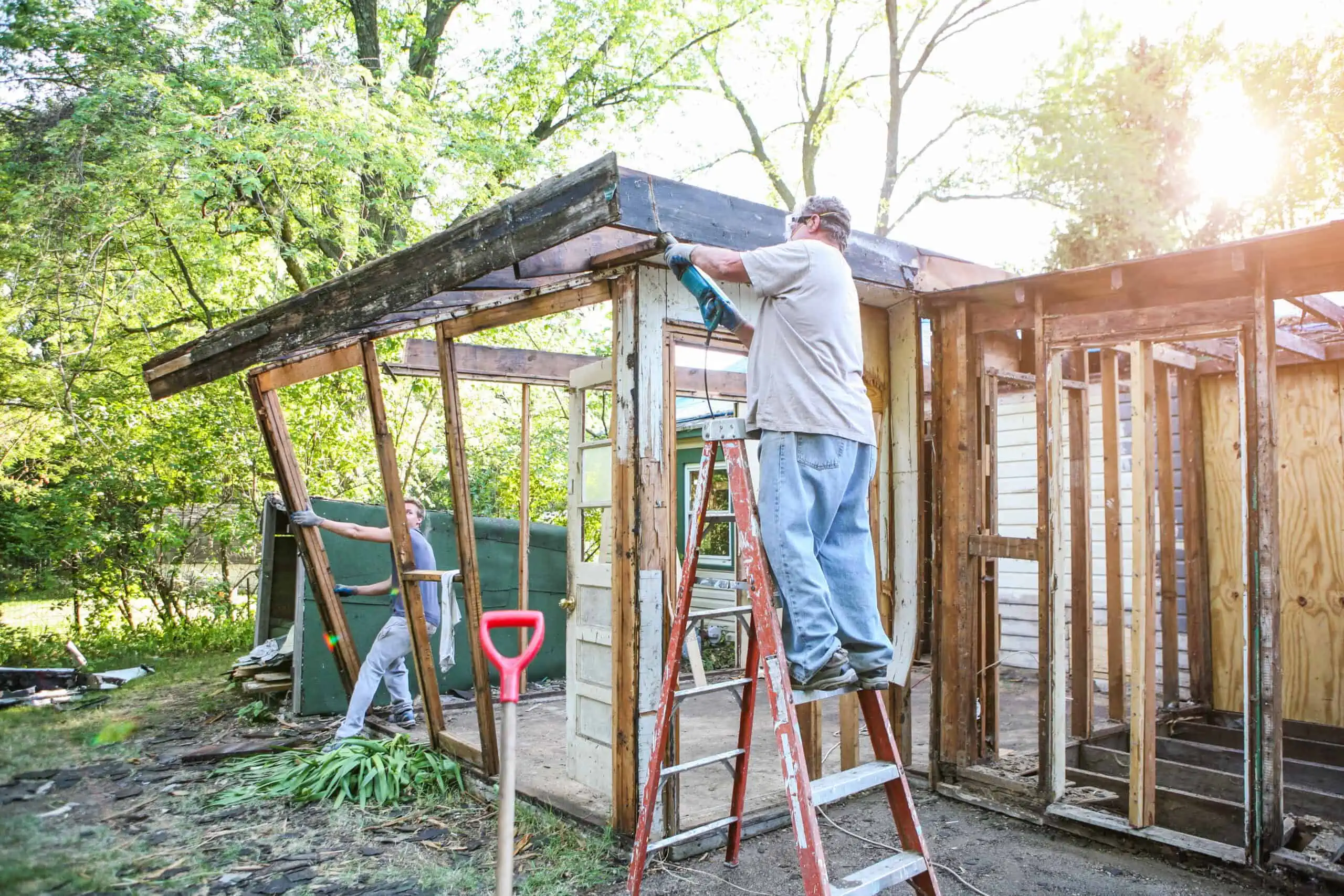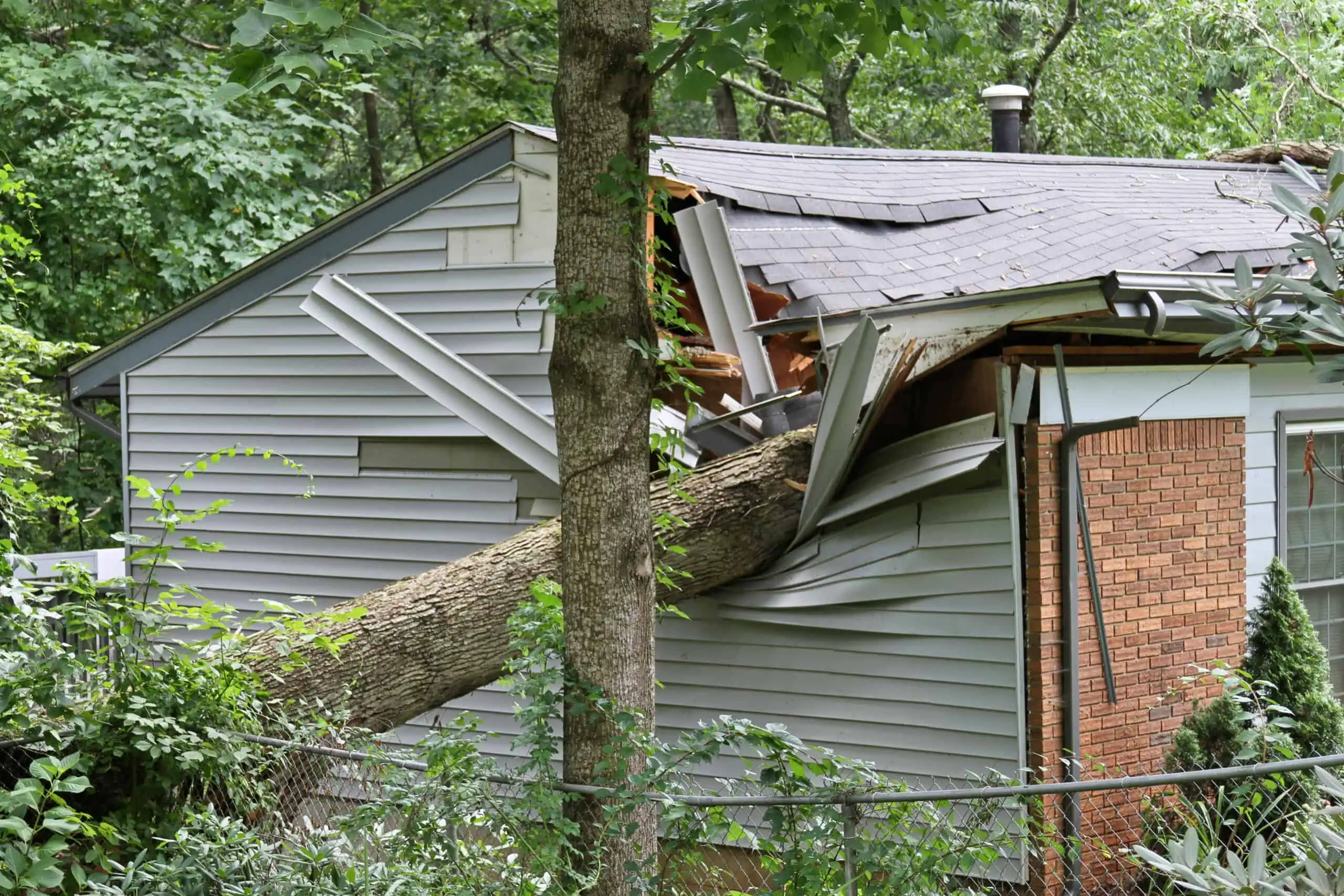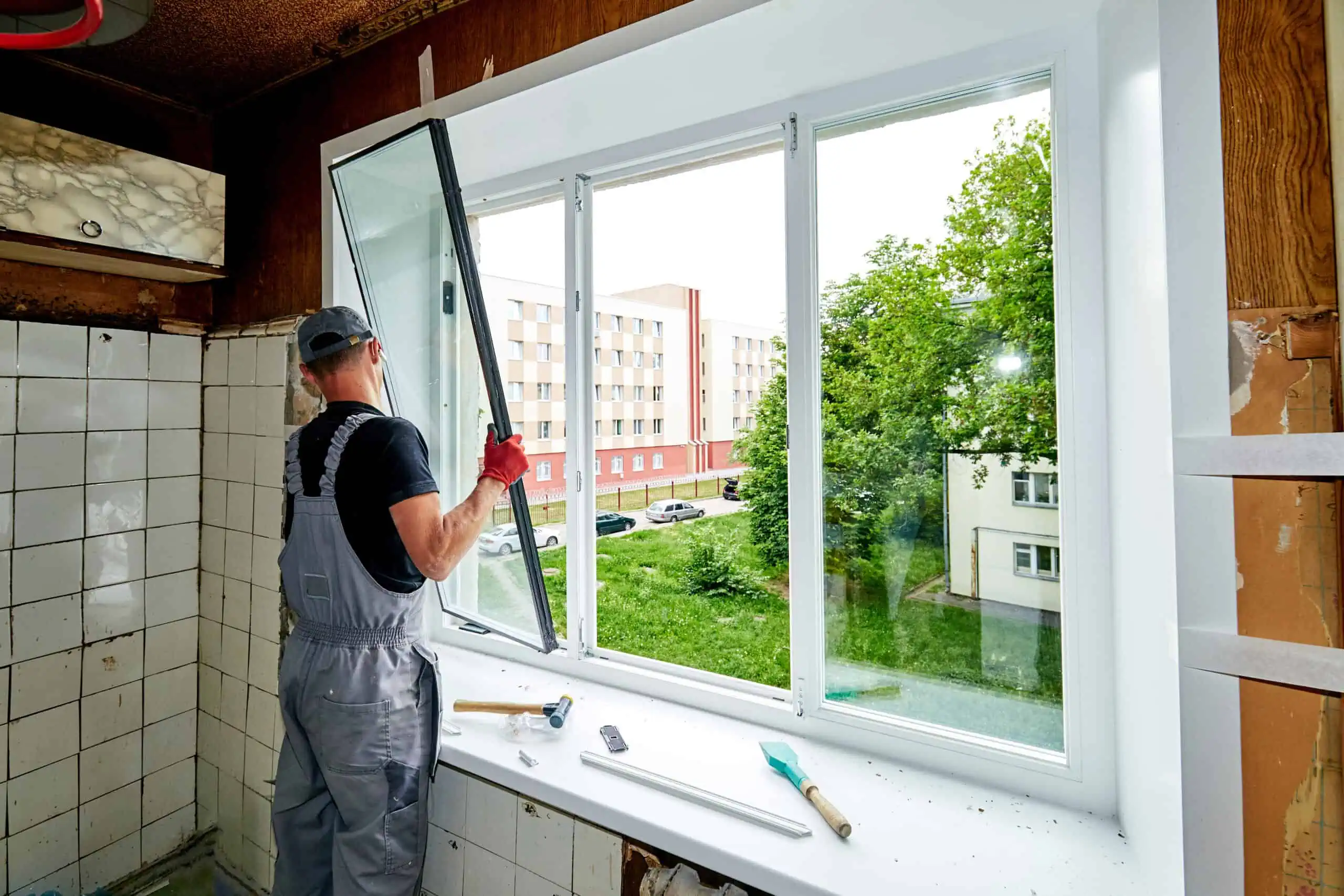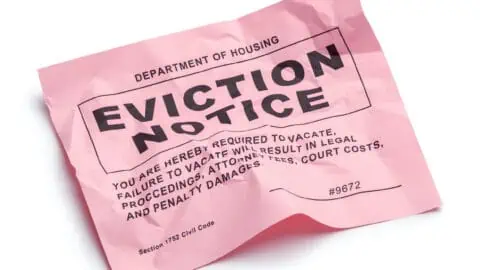Home Repair Grants: Here’s How the Government Pays for Some Home Improvement Projects
Posted in: I'm Moving, Moving AdviceIf your home needs certain repairs, you might be able to get free money from the government to help. It’s known as a home repair grant, and there are plenty of them to apply for.
Sounds too good to be true? While there are certain eligibility requirements, if you do meet the parameters, it can be a great way to get much-needed repairs or accessibility renovations for your home. Here’s everything you need to know about how to qualify, how to apply, and what the grants pay for.
What Is a Home Repair Grant?
A home repair grant is financial aid offered by federal, state, and local governments, to help homeowners pay for certain home repairs and improvements. There are also some private (aka not government-sponsored) grants available as well. Unlike loans that need to be repaid, grants are free money you don’t have to pay back.
“There are funds allocated to states and localities for the purpose of building, buying, and rehabilitating affordable housing. The HOME Investment Partnerships Program (HOME), for example, provides grants that communities use for this purpose.”
As you might have guessed, these grants are competitive. You likely need to meet certain income requirements or disability status, as well as have plans to make repairs that directly improve the safety, accessibility, or general living conditions of a home.
In other words, you probably won’t find a grant to put in new granite countertops or an in-ground pool. But if you need to install wheelchair ramps or rebuild after a natural disaster, you could be a great candidate for a home repair grant.
Types of Home Repair Grants
Since there are a lot of home repair grants available, it might be difficult to know where to begin. So here’s a look at some of the most common programs, along with the rules and eligibility requirements for them.
Assistance for seniors
Rural Housing: Housing Repair Loans and Grants
Also known as the Section 504 Home Repair program, this grant provides funds to very low-income homeowners age 62 and older in order to remove health and safety hazards. The program offers both low-cost loans and free grants. Here is a closer look at how grants under this program work:
- Awarded through states
- To qualify, you must:
- Be the homeowner and occupy the house
- Be unable to obtain affordable credit elsewhere
- Have a household income that does not exceed your county’s lower limit
- Be age 62 or older and not be able to repay a repair loan
- Grants must be used to remove health and safety hazards
- Maximum grant is $10,000
- Grants must be repaid if the property is sold in less than 3 years
- Applications are accepted through your local RD office
Assistance for veterans
VA Specially Adapted Housing (SAH) Grant
The Department of Veterans Affairs (VA) has home repair grants available to servicemembers and veterans with certain service-related disabilities. These grants help them purchase or construct an adapted home, or modify an existing home to accommodate a disability. The Specially Adapted Housing (SAH) grant is one of them. Here’s how it works:
- Offered through the federal government
- You must own your home (or will own your home) and have a permanent and total disability due to:
- The loss, or loss of use, of both legs so that you can’t get around without the use of an aid such as a wheelchair OR
- Blindness in both eyes, plus the loss or loss of use of one leg OR
- The loss, or loss of use, of one leg together with: (1) Residuals of organic disease or injury, or (2) The loss, or loss of use, of one arm
- Grants are used to assist with building, remodeling, or purchasing an adapted home
- Maximum grant is $109,986 for FY 2023
- You can use money from your grant up to 6 different times over your lifetime
- Log into your eBenefits account to apply
See prices for local moving labor. Read real customer reviews. Easily book your help online.
Special Housing Adaptation (SHA) Grant
The other VA home repair grant that exists is the Special Housing Adaptation Grant (SHA). This is also available to servicemembers and veterans who have certain service-connected disabilities. It works similarly to the SAH grant, with these differences:
- You or a family member must own the home (or will own the home) and you must have a permanent and total disability due to:
- Blindness in both eyes with 20/200 visual acuity or less OR
- The anatomical loss or loss of use of both hands OR
- Certain severe respiratory ailments
- Maximum grant is $22,036 available for the fiscal year 2023
Home Improvements and Structural Alterations (HISA) Grant
Another home repair grant available through the VA is the Home Improvements and Structural Alterations (HISA) grant. This grant is awarded through the regional medical center prosthetics department, and must be for medically necessary home improvements. Here’s what you need to know about this grant:
- Offered through the federal government
- Available to service members and veterans in need of medically necessary home repairs
- Written documentation from a doctor is required
- HISA funds may be used for the following purposes:
- Allowing entrance to or exit from the primary residence
- Use of sanitary facilities (such as roll-in showers)
- Allowing accessibility to kitchen or bathroom sinks or counters (such as lowering counters/sinks)
- Improving entrance paths or driveways
- Improving plumbing or electrical systems needed for home medical equipment
- Grants of up to $6,800 are awarded to applicants with certain service-related disabilities, while up to $2,000 is available to applicants without a covered disability
- HISA will not pay for: Walkways to exterior buildings; spa, hot tub, or jacuzzi; exterior decking; or new construction
- Renters can use HISA grant funds to alter rental properties with permission from the landlord or property management company
- To apply, start by completing a VA Form 10-0103, Veterans Application For Assistance. View full application instructions on the VA website
Assistance for disabled people
Rebuilding Together
Rebuilding Together is an organization focused on making essential zero-cost repairs to help people stay in their homes, including veterans and disabled people. It works with thousands of volunteers across the country to build and modify homes so that they are safe, accessible, and comfortable for occupants. Rebuilding Together works frequently with families and individuals living with disabilities, and improves over 10,000 homes annually.
- Grants are awarded by private, local affiliates
- Eligibility and award amount varies by affiliate
- Rebuilding Together focuses on building properties and making critical repairs
- Find your local affiliate program to submit an application.
Other types of assistance
Housing Improvement Program (HIP)
The Housing Improvement Program (HIP) is administered by the Bureau of Indian Affairs (BIA). It provides funds for home repair, renovation, replacement, and new housing to federally-recognized Indian Tribes for American Indians and Alaska Native (AI/AN) individuals and families who have no immediate access to standard housing. Details of the program include:
- Offered through the federal government
- To be eligible for HIP, you must meet the following criteria:
- Be a member of a federally recognized American Indian Tribe or be an Alaska Native
- Live in an approved tribal service area
- Have income that does not exceed 150% of the DHHS poverty guidelines
- Live in substandard housing
- Not qualify for other housing assistance
- Have not acquired your present housing through a federally sponsored housing program
- Funds can be used to make repairs for housing conditions that threaten the health and/or safety of the occupants, as well as repairs and renovations to improve the property’s condition so that it meets applicable building code standards.
- Maximum grant of up to $7,500 for interim improvements, and up to $60,000 for repairs and renovations
- Applicants may also qualify for a modest replacement home if their current dwelling can’t be brought up to code, or a new house if they are not a homeowner but own suitable land
- To apply, fill out an application or contact your local tribal or BIA Regional Housing Office
Federal Emergency Management Agency (FEMA) Grants
FEMA is an agency that helps people who have had their homes damaged as a result of a presidentially declared disaster, such as a hurricane or flood. This includes financial assistance to homeowners to repair disaster-caused damage to their primary residence when it’s not covered by insurance, with the goal of making the home safe, sanitary, and fit to occupy. Here’s what you should know about these grants:
- Offered through the federal government
- Applicants must be able to prove the disaster-damaged home was their primary residence. Damages must not be covered by insurance
- Grants may cover home repairs, home replacement, and permanent housing construction
- Grant amounts depend on the funds available for the year
- Grants may also cover hazard mitigation measures to help reduce the amount of damage to the home in future disasters
- Find assistance and apply online at DisasterAssistance.gov
Weatherization Assistance Program (WAP)
Offered through the U.S. Department of Energy (DOE), the Weatherization Assistance Program (WAP) helps those with low incomes make their homes more energy-efficient while ensuring health and safety. Participating households save an average of $372 or more every year. Details of the program include:
- Offered through the federal government
- Households at or below 200% of the poverty income guidelines are eligible, or if they receive Supplemental Security Income or Aid to Families with Dependent Children. Each state or territory may also elect to use its own poverty guidelines. Priority is given to the elderly, families with one or more members with a disability, families with children, and high-energy users
- Necessary repairs are determined by a professional energy audit. All work is energy-related and doesn’t include new roofing, siding, or similar structural improvements
- For 2020, the adjusted average cost per unit (ACPU) was $7,669 per home
- Contact your state weatherization agency to apply (or look up your state in the table below and click on the link)
How To Apply for Home Repair Grants
The application process will vary depending on what organization is awarding the grant. However, you’ll usually start by filling out a form in order to share important details about yourself, your property, and your finances. You’ll also get more information about the next steps in the application process.
“Offered through the U.S. Department of Energy (DOE), the Weatherization Assistance Program (WAP) helps those with low incomes make their homes more energy-efficient while ensuring health and safety. Participating households save an average of $372 or more every year.”
When applying for home repair grants, there are several types of documentation you might need to prepare. You may need to provide proof of income, such as tax returns and bank account statements, medical documentation that shows a particular disability, photos of your property that needs repair, or any other items the application asks for.
If you need any assistance finding and applying for home repair grants, try reaching out to the National Residential Improvement Association (NRIA). By visiting the website and clicking the “Application” link in the top navigation menu, you can fill out a brief questionnaire and get connected to an NRIA Program Specialist who will try to help you determine which types of programs you may be eligible for.
Other Sources of Financial Assistance for Those in Need
The programs we’ve mentioned are just some of the more well-known home repair grants available. There are many more sources of financial aid for needed home repairs. Here are a few more options to check out if you don’t qualify for a federal grant.
State and local governments
There are funds allocated to states and localities for the purpose of building, buying, and rehabilitating affordable housing. The HOME Investment Partnerships Program (HOME), for example, provides grants that communities use for this purpose. And it’s a flexible program that allows states and local governments to use HOME funds for grants, direct loans, loan guarantees, and more. So research the local grants available in your area — there may be one that you qualify for.
Energy agencies

If you’re interested in a grant to make energy-efficient upgrades to your home, funds may be available through EnergyStar.gov, your city or state energy commission, and local energy companies. The Department of Energy also has a website called Energy Saver that lists many options for grants or discounts on monthly utility costs when you make certain energy-saving upgrades.
Volunteers of America
Volunteers of America is a nonprofit organization that offers hundreds of human service programs, including providing low-income families with free labor and low-cost or donated materials to make necessary home repairs and help build affordable housing.
Assistance for moving expenses
Owning and repairing a home comes with many costs that can be tough to keep up with. But moving can also be a major expense. Fortunately, there are some grants that can help alleviate that financial burden for those who qualify, particularly those with very low incomes or those who need to relocate because of natural disasters. FEMA provides a grant for the latter, and there’s an IRS tax deduction to help low-income families move.
See prices for local moving labor. Read real customer reviews. Easily book your help online.
Housing Industry Foundation’s Emergency Housing Fund
The Housing Industry Foundation (HIF) collaborates with a network of partner agencies to provide its Emergency Housing Fund. This one-time grant of up to $2,500 is available to eligible applicants who are threatened with homelessness and need help with housing relocation. Applications will reopen on January 3, 2023, but you can learn more about how to apply.
Modest Needs Grant
Modest Needs is a non-profit organization that offers one-time Self-Sufficiency Grants to families who are living just above the poverty level and don’t qualify for most other types of assistance. This home repair grant awards from $750 to $1,250, on average. They’re paid out to service providers and vendors directly, and can be used for a wide variety of purposes, including moving costs (like renting a moving truck). You can get more information on how to apply for a Modest Needs grant on their website.
VA housing assistance
Servicemembers, veterans, and their spouses who need low-income moving assistance can reach out to the VA Housing Assistance program, which offers financial aid to help cover transitional housing expenses. You can visit the VA housing assistance page for more information.

